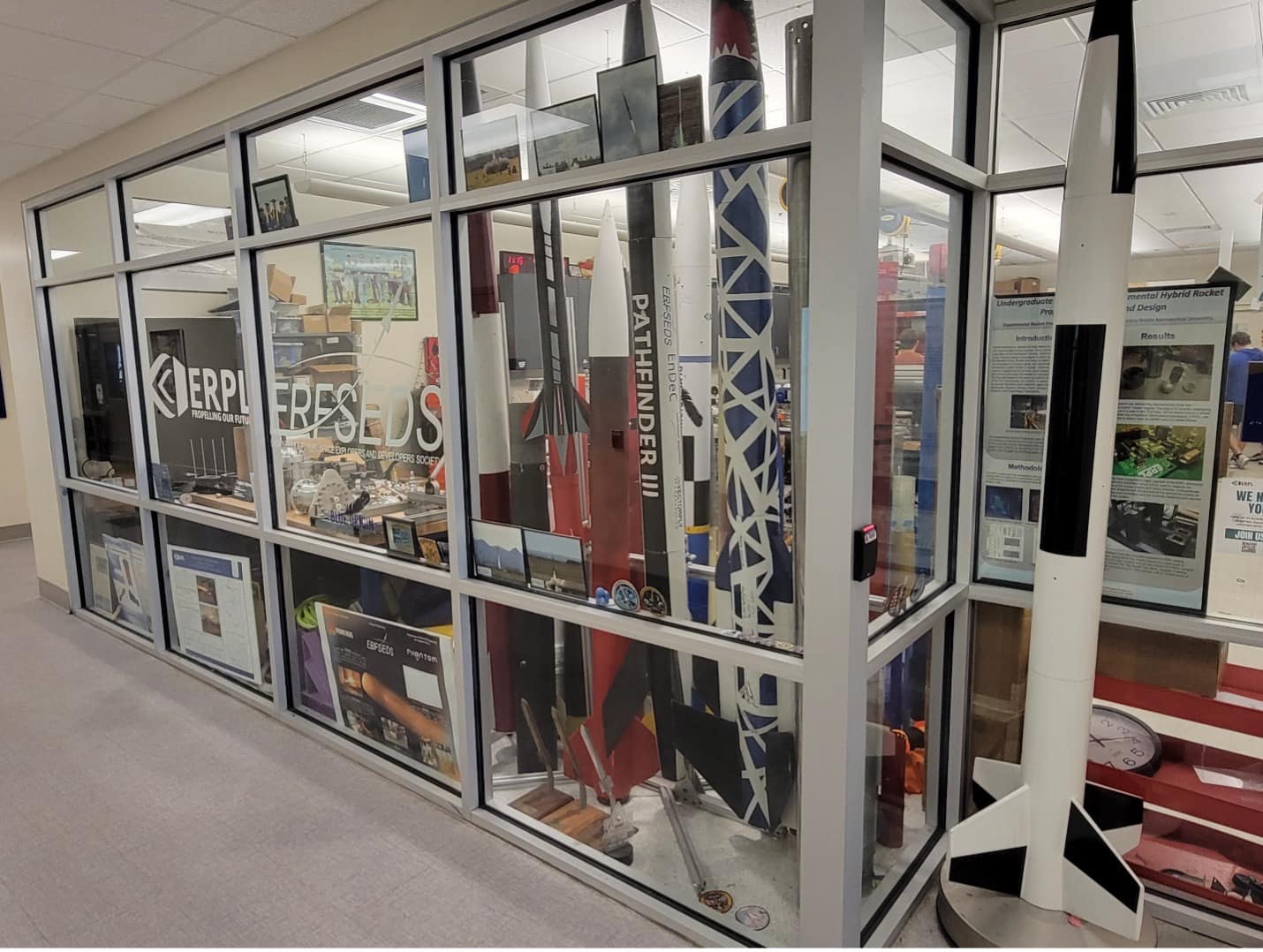In the Rocket Engineering Laboratory, students put their classroom knowledge to work on projects of their own imagination. Centrally located on the first floor of the Lehman Engineering and Technology Center, the Embry-Riddle Future Space Explorers & Developers Society (ERFSEDS) and the Experimental Rocket Propulsion Lab (ERPL) clubs accept new student members continuously, offering their collective expertise to shepherd new student innovations from concept to operation. The “Rocket Clubs” execute some of Embry Riddle’s most advanced student projects.
Equipment
- Composite filament winder
- 3D printer
- Computer workstations with CAD, CFD and rocket analysis codes
Projects
- Annual rocket engineering competitions: International Rocket Engineering Competition (IREC); Friends of Amateur Rocketry (FAR)
- High-performance rocketry Level 1 certification workshops
- Composite Manufacturing
- Supersonic parachute
- Rocket avionics systems development
- Composite propellant mixing and testing
- LOX/Ethanol liquid bipropellant engines
- Bipropellant ground test propellant feed system
- Data acquisition (DAQ) systems for ground testing
- Hybrid rocket engine
Lab Information
Location: LB 130
Lab Directors: Eric Perrell and Ilteris Demirkiran
Contact Us: To speak to someone about this lab or any of our facilities, call us at 386-226-6100 or 800-862-2416, or email DaytonaBeach@erau.edu.

